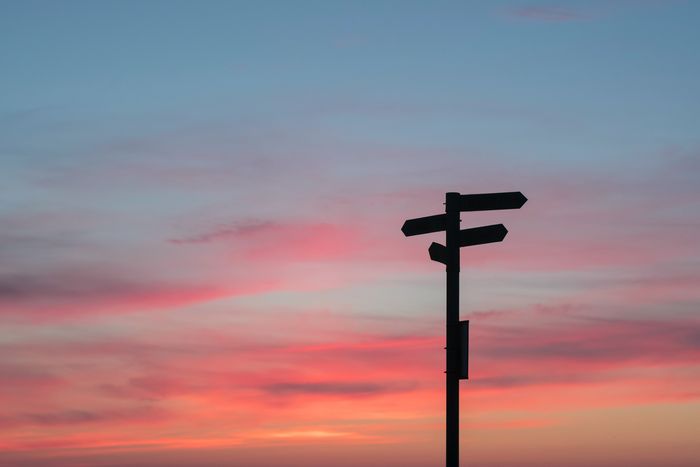A look at the program of the world's largest tourism trade show, ITB, which starts on March 8, 2021, reveals a competition between the old, conventional tourism and a new, better tourism. ITB NOW 2021 is a mirror of the current debates in the tourism world: Some promise to "build back better"; others follow their old business paths. So where is tourism heading?
One day in March a year ago
Almost exactly a year ago, when ITB was cancelled on very short notice, the tourism sector was bursting with energy. For years, the industry had only known one direction globally: up. At the same time, the breaking points of unchecked growth were becoming increasingly visible: protests against overtourism and gentrification of residents happened on a daily basis in many destinations. The connection between tourism and climate change was getting more and more attention. Especially in the societies of Central Europe, where travel was nothing special any more for many, people were asking themselves whether tourism was worth destroying habitats of hosts and the global climate.
No going back to square one
The collapse of tourism in the wake of the COVID-19-crisis has not solved any of these problems, it has only added new ones - at least on this point, tourism critics and business representatives fully agree. While the latter – primarily the major tourism industry associations - insist that tourism must first recover economically in order to have the strength to tackle the other problems, critics are justifiably more impatient. Among them are many scientists, pioneers of sustainable tourism and non-governmental organizations. For them, going back to the old, destructive normal is not an option! Global crises such as the growing divide between rich and poor or climate change will not wait until the COVID-19-pandemic is over. The world's complex challenges cannot be solved one after the other, but are mutually dependent. What would be necessary for tourism to have a future was formulated by climate and tourism researcher Stefan Gössling with the imperative of low-carbon, high-value and resilient tourism in summer of 2020.
The economic dimension of sustainability
The economic vulnerability of tourism to external crises such as a global pandemic, now adds economic fragility to the environmental and social vulnerability that has so far only been seriously discussed in the sustainability niches. In other words, COVID-19 has brought sustainability out of its niche because discussions about resilience have now put economic sustainability at the top of managers' and CEOs' agendas. Therefore, the debate about resilience also strengthens the understanding of environmental and social challenges. All this means that the discourse has also changed in the tourism industry itself.
2020 - the year of commitments to better tourism
Never have there been that many manifests and commitments as in 2020: Some, like the UNWTO's "One Planet Vision for Sustainable Tourism Recovery", are stuck in the old way of thinking. For example, they hope for solutions to the tourism climate dilemma in immature future technologies instead of offering products that emit less carbon in the here and now. Other initiatives are more robust. Tourism declares, under which 208 companies commit to carbon reduction, are addressing changes in their core business. The first companies in this network have already set climate targets to make their products compatible with the goals of the Paris Climate Agreement in the long term. The Future of Tourism Coalition follows a very holistic approach and, in its 13 principles on participation, fair payment, reduction of the climate footprint, and fair tax systems, provides many ideas on what is necessary for a better tourism. In Germany, 300 stakeholders have jointly developed the "Impulse4travel Manifest" (only in German), which aims to inspire a new appreciation for travel and the people who work in tourism. Now they are working on its implementation so that tourist destinations can once again become what they actually are: Habitats of the hosts. These three initiatives have in common that they do not push away the responsibility, but accept it. Nevertheless, these actors must be measured against their promises if tourism is to pick up again.
Alarming Signs of Disaster Capitalism in the Midst of the COVID-19-crisis
At the same time, however, old tourism patterns are still being practiced and even expanded all over the world. On the Caribbean island of Barbuda, the population has been fighting the construction of a new hotel and golf resort since Hurricane Irma hit in 2017. People fear that the destruction of mangroves and dunes will make them even more vulnerable to the increasingly violent hurricanes. The prime minister of the island nation of Antigua and Barbuda is now justifying the continuation of the controversial project by citing the COVID-19-pandemic and the resulting economic crisis.
Also, other developments seem inappropriate: 30 new airlines want to take off, especially on the short- and medium-haul routes, where flying in general is ecological nonsense. Analysts are not surprised about the new aviation start-ups: While some airlines are desperate to turn their old aircrafts into cash, others are profiting from the bargains on the used aircraft market. The necessary renewal of the fleets is thus set back by years, because the kerosene-guzzling old aircrafts will remain in the air for even longer.
Change will come - by design or by disaster
Regardless of how you look at current developments in tourism - whether the many new initiatives make you optimistic or if you continue to doubt the reality of tourism - one thing is certain: pandemics, extreme weather events or major digital disasters, as predicted by the World Economic Forum's 2021 Risk Report, will increase. Those who accept these challenges and set out on the path to more sustainable tourism will be better prepared, because change will come - by design or by disaster.



![[Translate to english:] Person mit braunem Karton mit Aufschrift](/fileadmin/tourismwatch/_processed_/f/7/csm_cody-pulliam-GGKVGSkKIzM-unsplash_2__3191338c2b.jpg)
